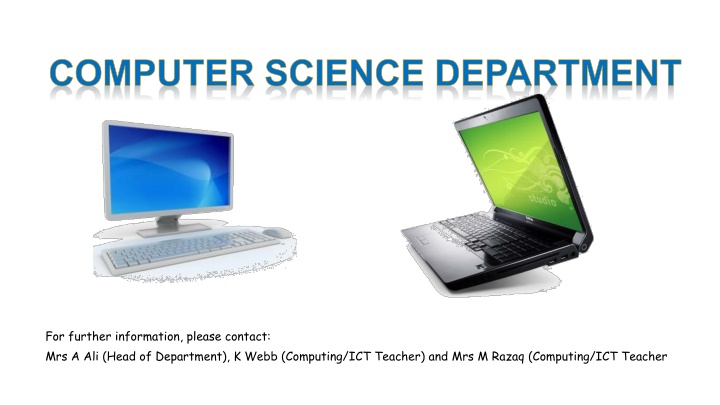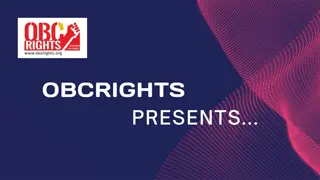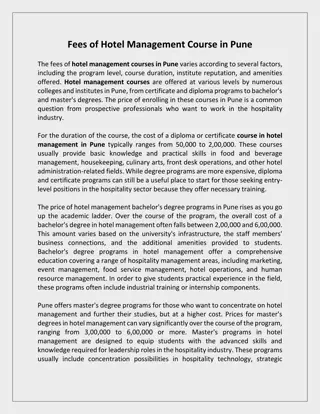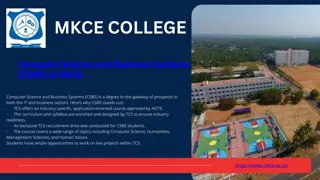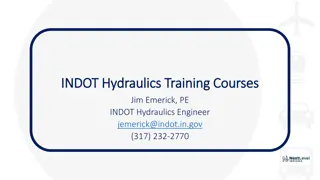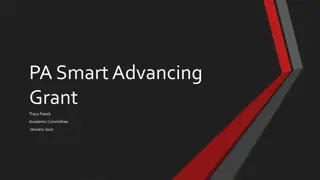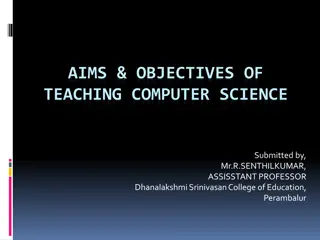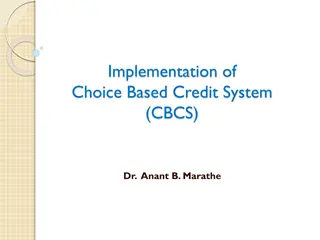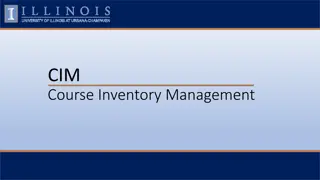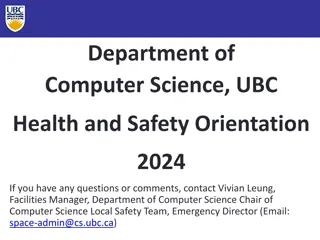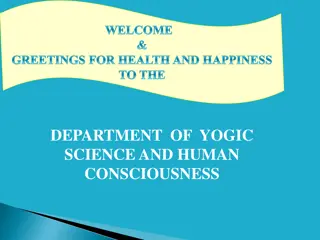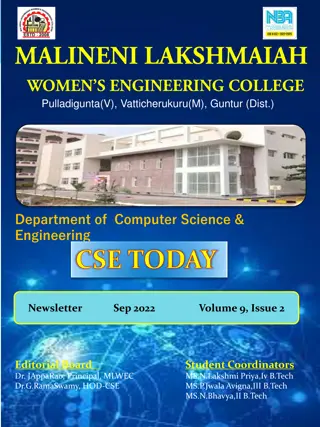Computer Science Department Information and Courses Offered
The Computer Science Department provides information on courses offered for GCSE or BTEC qualifications, specifically focusing on the AQA GCSE in Computer Science. The course equips students with valuable thinking and programming skills essential in the modern workplace, covering key concepts and principles of computer science. Assessment criteria and objectives for the AQA GCSE in Computer Science are detailed, along with information on the BTEC L1/L2 Tech Award in Digital Information Technology. Students can choose from different courses to enhance their knowledge and skills in the field of computer science.
Download Presentation

Please find below an Image/Link to download the presentation.
The content on the website is provided AS IS for your information and personal use only. It may not be sold, licensed, or shared on other websites without obtaining consent from the author.If you encounter any issues during the download, it is possible that the publisher has removed the file from their server.
You are allowed to download the files provided on this website for personal or commercial use, subject to the condition that they are used lawfully. All files are the property of their respective owners.
The content on the website is provided AS IS for your information and personal use only. It may not be sold, licensed, or shared on other websites without obtaining consent from the author.
E N D
Presentation Transcript
COMPUTER SCIENCE DEPARTMENT For further information, please contact: Mrs A Ali (Head of Department), K Webb (Computing/ICT Teacher) and Mrs M Razaq (Computing/ICT Teacher
COMPUTER SCIENCE DEPARTMENT In key stage four we offer two courses to gain a GCSE or BTEC qualification. Pupils can choose from the Edexcel or AQA course. Pupils will need to choose this as one of their options.
AQA GCSE IN COMPUTER SCIENCE The Computer Science course gives the students valuable thinking and programming skills that are extremely attractive in the modern workplace. It gives them a deep understanding of the key concepts and principles of computer science. It allows students to make reasoned judgements and to design, program, evaluate and refine solutions.
AQA GCSE IN COMPUTER SCIENCE Assessment Criteria: Two externally assessed exam papers marked by the exam board Paper 1: (50%) This unit covers the body of knowledge about Computational Thinking, Algorithms and Programming on which the examination will be based. This is externally assessed: 2 hours written paper worth 90 marks. Paper 2: (50%) This unit covers the body of knowledge about Computer Systems theory and practical SQL programming skill on which the examination will be based. This is externally assessed: 2 hours written paper worth 90 marks.
AQA GCSE IN COMPUTER SCIENCE Assessment Objectives: AO1: Demonstrate knowledge and understanding of the key concepts and principles of computer science. AO2: Apply knowledge and understanding of key concepts and principles of computer science. AO3: Analyse problems in computational terms: to make reasoned judgements. To design, program, evaluate and refine solutions.
BTEC L1/L2 TECH AWARD: DIGITAL INFORMATION TECHNOLOGY The Award gives learners the opportunity to develop sector- specific knowledge and skills in a practical learning environment. Learners who generally achieve at Level 2 across their Key Stage 4 might consider progression to A Levels as preparation for entry to higher education in a range of subjects. Study of a vocational qualification at Level 3, such as a BTEC National in IT, which prepares learners to enter employment or apprenticeships, or to move on to higher education by studying a degree in the digital sector.
BTEC L1/L2 TECH AWARD: DIGITAL INFORMATION TECHNOLOGY The main four areas of focus are on: Development of key skills that prove your aptitude in digital information technology, such as project planning, designing and creating user interfaces, creating dashboards to present and interpret data Process that underpins effective ways of working in digital information technology, such as project planning, the iterative design process, cyber security, virtual teams, legal and ethical codes of conduct Attitudes that are considered most important in digital information technology, including personal management and communication Knowledge that underpins effective use of skills, process and attitudes in the sector such as how different user interfaces meet user needs, how organisations collect and use data to make decisions, virtual workplaces, cyber security and legal and ethical issues.
